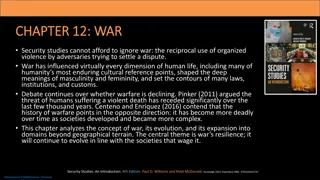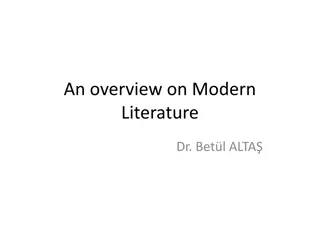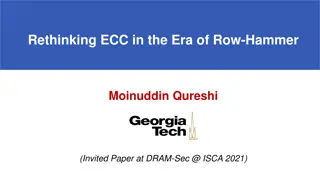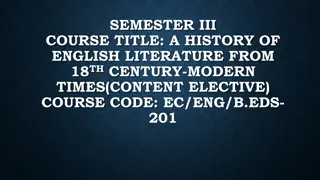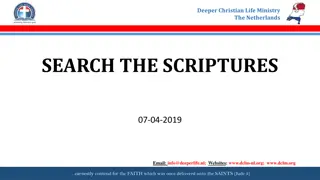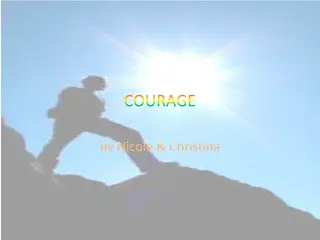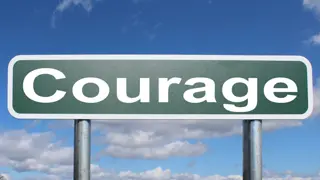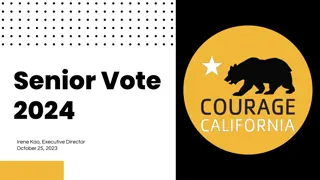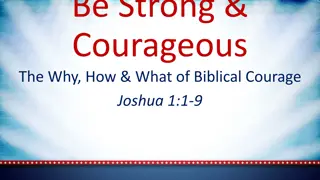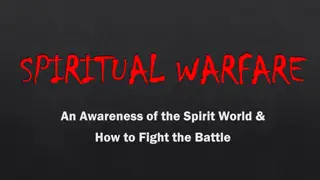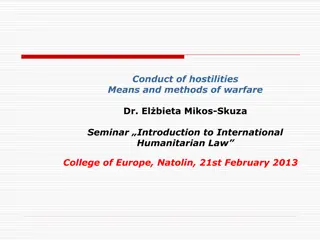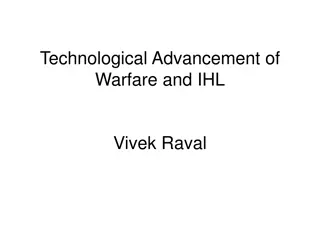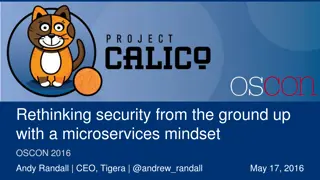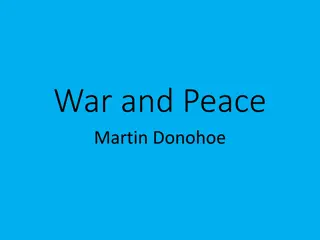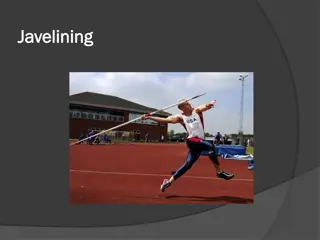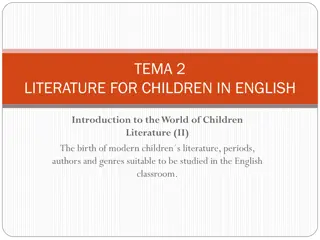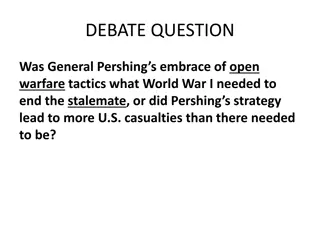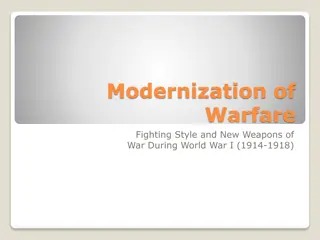Rethinking Courage in Literature and Technology of Modern Warfare
The concept of courage in war literature has evolved from physical prowess to the impact of technology on bravery. Examining works like "The Red Badge of Courage," this exploration delves into the changing ideals of courage amidst the challenges of drone warfare and the complexities faced by modern soldiers.
Download Presentation

Please find below an Image/Link to download the presentation.
The content on the website is provided AS IS for your information and personal use only. It may not be sold, licensed, or shared on other websites without obtaining consent from the author. Download presentation by click this link. If you encounter any issues during the download, it is possible that the publisher has removed the file from their server.
E N D
Presentation Transcript
Redefining Courage in the Age of Drone Warfare John Casey University of Illinois at Chicago
Courage and War Literature Courage can be defined in a number of ways War Literature as a genre typically depends upon a specific notion of courage that emphasizes physical prowess in battle Envisions two combatants fighting each other face to face
Technology and War Literature Technology s impact on physical courage a more common theme in U.S. fiction than physical courage itself This is one of the dominant topics in the best known early U.S. example of war literature: The Red Badge of Courage The novel s main character, Henry Fleming, anticipates a change in subjectivity due to his participation in the war Images of physical courage a key component of that imagined change
The Red Badge of Courage (1895) The youth had been taught that a man became another thing in a battle. He saw his salvation in such a change (Crane, 21). He had, of course, dreamed of battles all his life of vague and bloody conflicts that had thrilled him with their sweep and fire. In visions he had seen himself in many struggles. He had imagined peoples secure in the shadow of his eagle-eyed prowess (5).
The Red Badge of Courage (cont.) Yet Henry worries that in the modern age such an opportunity to prove his physical courage will be denied him He had grown to regard himself merely as part of a vast blue demonstration (8). He had long despaired of witnessing a Greeklike struggle. Such would be no more, he had said. Men were better, or more timid. Secular and religious education had effaced the throat-grappling instinct, or else firm finance held in check the passions (5).
The Red Badge of Courage (cont.) We are left wondering throughout the novel why Henry bothers to enlist if he doubts that physical courage is possible for his generation Does he believe that he might counter the trends he sees eroding physical courage or does he simply despair of an alternative and not want to be left out of the defining moment of his generation? Our dilemma as readers becomes more acute when Henry runs during his first battle and receives his red badge of courage, a blow to the head from the musket of another retreating soldier from his own army
The Soldier as Martyr Crane s novel an early example of a new literary approach to war in the United States Narratives focus less on the heroic aspects of combat and more on sacrifice and social norms The suffering that soldiers endure in battle and camp and the social values challenged by combat become the enduring messages of U.S. war literature Think of the writings of Ernest Hemingway, James Jones, and Tim O Brien
The Age of Drone Warfare This narrative approach has not substantially changed in war literature in the United States since 9/11 but the emphasis has shifted Most obvious shift is away from a focus on the physical and psychological suffering of soldiers in a combat zone to the moral and ethical dilemmas they face, more generally, during times of war This shift fits with the rising use of drones (technically known as Unmanned Aerial Vehicles or UAV s) in the War on Terror in place of boots on the ground
Unmanned (2014) One example of this shift is the novel Unmanned, written by spy fiction author Dan Fesperman Protagonist is Captain Darwin Cole, an Air Force F-16 pilot with multiple tours of duty who is reassigned to fly combat drones at Creech Air Force Base near Las Vegas, NV Already hates his new assignment but is shaken out of his boredom when he kills a young girl during a surgical strike on a supposed terrorist hideout in the fictional region of Sandar Khosh (modelled after villages in Waziristan)
Unmanned (cont.) Captain Cole spirals out of control and is discharged from the Air Force His wife and children leave him as he descends into alcoholism Meets a group of reporters who are looking to uncover the relationship between the U.S. military, the CIA, and private defense contractors in the War on Terror What they discover is a complex web of profiteering and betrayal in which technology and war are just business transactions
Unmanned (cont.) The beauty of this program is that you can be in the thick of the action without the hassles of a deployment. I m not sure I d call this action. That s because you aren t yet sold on the value, the power even, of what a UAV can accomplish with the right man at the controls (Fesperman, 35). [Captain Lodge, Drone Operations Supervisor, to Captain Cole]
Unmanned (cont.) Retired CIA field agent Owen Bickell Make your living from a technological shortcut and pretty soon other shortcuts looked equally tempting, no matter how reckless (48). Nelson Sharpe (drone developer): Commerciallly speaking, this field is about to explode. Right now the FAA is choosing six nationwide test sites. Places to try out every sort of drone application you could imagine. By the end of 2015 they ll be coming up with a whole new set of rules for what drones can and can t be used for. IntelPro, like plenty other kids on the block, is positioning itself to cash in. Thanks to their many friends in government they re in great shape to do so (174). Bickell (again): This isn t about what happened over there anymore. It s about what s happening here. Right now (66).
Good Kill (2015) Movie follows a plot similar to Unmanned but with less political intrigue Major Tom Egan is a decorated Air Force F-16 pilot with multiple tours of duty who is assigned to Creech Air Force Base near Las Vegas, NV As with Captain Cole, Major Egan discovers that not engaging in combat is more courageous sometimes than blind obedience to the mission After all, as he points out in one scene, there is no threat to him from an enemy that is thousands of miles away
Good Kill (cont.) I miss the fear. You re up in the sky. Something can happen. There s some risk. You, know. We ve got no skin in the game. I feel like a coward. Everyday. Taking pot shots from half a world away in an air-conditioned cubicle. If they get lucky, they shoot my plane down. I m not even in it. All they got to do is pull another one out of the box. Worse thing that can happen to me is carpel tunnel or I spill coffee on my lap. The most dangerous thing I do is drive home on the freeway. [Major Egan speaking to his Co-Pilot, Airman Suarez]
Good Kill (cont.) Major Egan, again like Captain Cole, starts to reassess his role in the War on Terror This leads him at the end of the film to create his own mission As part of his surveillance of a Pakistani village, he noticed a man raping a local woman His last act before going AWOL is to launch a missile strike against this man After killing him, he walks away from the drone control panel and speeds off in his car to reunite with his estranged wife and children
Eye In The Sky (2016) Unmanned and Good Kill both focus on the loss of male prestige that accompanies a shift from modern combat mediated by technology to a new hyper-modern form of warfare where machines do most of the fighting This ultimately receives greater emphasis in each narrative than the moral and ethical issues of drone warfare Eye In the Sky, in contrast, focuses almost exclusively on those moral and ethical dilemmas
Eye In The Sky (cont.) Colonel Katherine Powell is a counter-terrorism commander seeking to kill or capture members of the Al Shabab terrorist group in Kenya This film focuses on her mission against a specific group of targets using technology and human resources The technology is predator drones owned by the U.S. Air Force and surveillance drones owned by the Kenyan Army Human resources include members of the Kenyan Special Forces and Intelligence agencies
Eye In The Sky (cont.) Aside from the role of international law in adjudicating the rules of engagement, this film highlights particularly well that the sacrifice of war has been shifted to the developed world The film reminds us that physical courage persists in those contexts where technology is not sufficient to accomplish the mission It s exhibited, however, by special forces operatives and secret agents rather than massed armies
Eye In The Sky (cont.) In my opinion, that was disgraceful. And all done from the safety of your chair. (Angela Northman, Parliamentary Advisor) I have attended the immediate aftermath of five suicide bombings. On the ground. With the bodies. What you witnessed today with your coffee and biscuits is terrible. What these men would have done would have been even more terrible. Never tell a soldier that he does not know the cost of war. (Lt. Gen. Frank Benson, Special Operations Commander)
The Future of War Literature In keeping with the nature of a roundtable, my conclusions are speculative in nature and meant to generate discussion It seems likely that in the future war literature in the Developed World will merge into spy fiction/thrillers as science fiction becomes science fact Technology now mediates warfare in the Developed World to such an extent that issues of ethical and moral courage far outweigh those of physical courage upon which the genre was based
Questions for Discussion Does the emergence of Drone Warfare really signal a shift to something new in warfare? And will that indeed affect the way authors write about war? Are these historical shifts relevant in the classroom or should we teach war literature in its original context regardless of our own? Will war literature still be read as a distinct genre or will it gradually be (as I have suggested) absorbed by genres such as the spy novel or thriller?
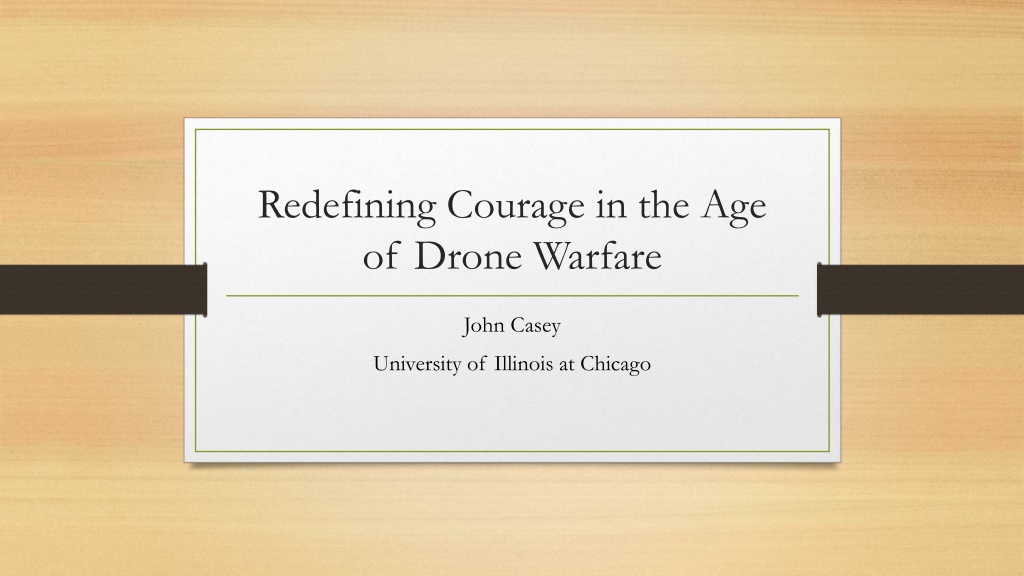
 undefined
undefined


